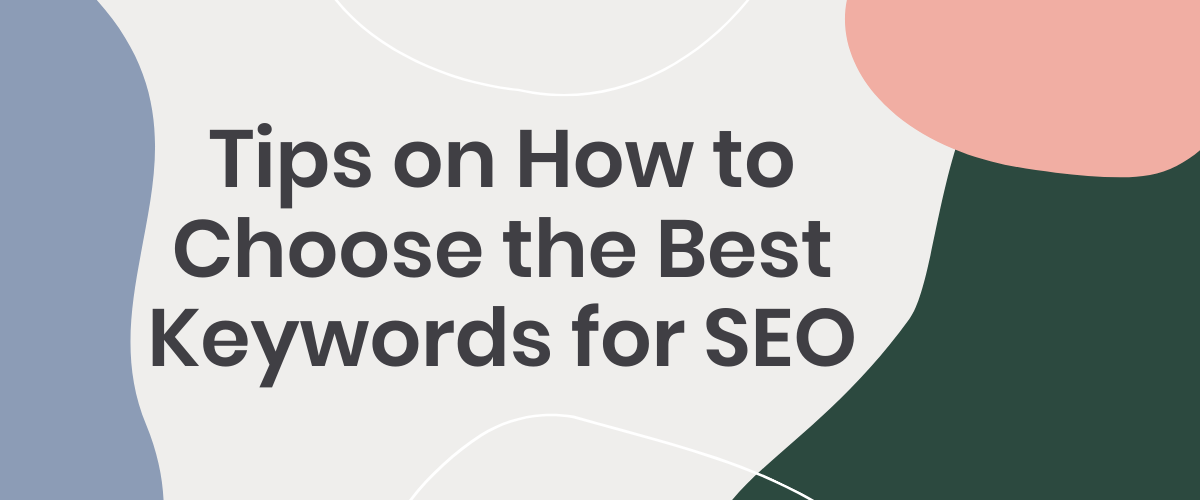
Keywords are said to be the lifeblood of successful Search Engine Optimization (SEO) efforts. This is why choosing the right keywords for your website is a crucial step to consider. It plays an integral role in attracting the right audience, driving traffic to the website, and building an online presence.
Performing keyword research may sound simple since there are various tools and platforms where it can be done conveniently. However, the process can be tricky because you need to consider some important factors such as relevancy, competition, amount of searches, and more.
The following tips will help you search and choose the right keywords that will help you gain online visibility and search engine rankings:
Think like a customer by analyzing search intent
First, you must identify your target market. If you’re the customer, what are the terms you will use in the search box to find details about a particular product? List down those phrases or keywords before checking their average monthly searches and competition levels.
You should also understand the search intent to identify the best keywords. They can be informational, navigational, and commercial. Keywords can be used to research a topic, find another web page, or intent to make a purchase.
Analyze your competition
Another technique to find the best keywords is by analyzing the website and strategies of your competitors. There are tools such as SEMRush, Ubersuggest, and Keyword Planner tools that can run a competitor analysis. Check the keywords they are targeting and are ranking for.
Check their content, meta title, meta description, and meta tags to identify the keywords they are using. This will not only help you discover their target keywords but will also broaden your keyword ideas.
Use the different types of keywords
We often hear from some experts to use long-tail keywords to improve SEO. While that is correct, you should also understand that there are different types of keywords that you can utilize: head keywords, body keywords, and long-tail keywords.
- Head keywords generally contain one or two words and give broader search results. (Example: office chair)
- Body keywords are a bit longer, usually containing three words, and provide results lesser than head keywords.
(Example: ergonomic office chair)
- Long-tail keywords have four or more words, producing more specific results on search pages. This type of keyword is easier to rank on SERPs compared to head keywords.
(Example: where to buy an ergonomic office chair, benefits of using ergonomic office chair)
Infuse keywords into your content properly
Inserting keywords to your content can be tricky. It’s not just stuffing them anywhere in your content and expecting to get ranking after weeks or months.
A page that looks spammy is removed or ranked very low by Google. This is why you need to add your keywords naturally and not spam the page.
Monitor and analyze your keyword performance
Once keywords are chosen, you should not forget to monitor and evaluate their performance. There may be new keywords that are trending and relevant to your target audience. Use keywords in your blog posts, metadata, social media posts, and other website content. Use keyword tools that can give you a report or analysis on how each keyword is performing.
Refine your keywords with Latent Semantic Indexing
Google uses Latent Semantic Indexing (LSI) to generate related results through your keywords. LSI are phrases that Google identifies as possibilities relevant to the keyword you’re typing in the Google search box. There are also related searches that appear at the bottom of the page once you’ve searched for a specific keyword.
Conclusion
Choosing the best keywords for a business can help a company grow and become successful online. Keyword research is a critical initial step of every SEO effort. Since this process can often be tricky and challenging, hiring an expert to do this is recommended.
Learn how to choose and use keywords properly for your website with our help here at Elly and Nora Creative. We are one of the top branding agencies in Phoenix offering branding, content, and publicity solutions for purpose-driven companies and entrepreneurs. Contact us today to get started!
